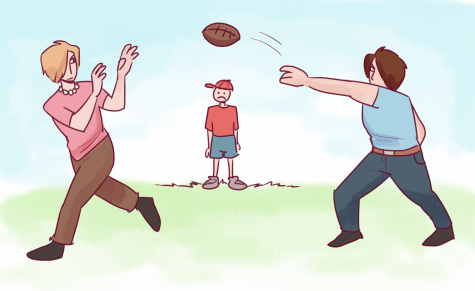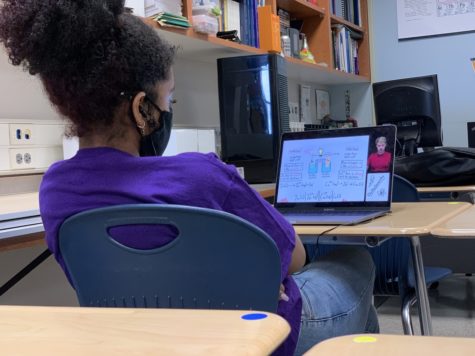Stranium in the Cranium
In a generation of rising academic standards, AP classes starting at eighth grade, and intensive ACT prep courses, it’s no surprise that stress levels in high-school students have reached record highs. According to a study conducted by The Oregonian, the number of students dealing with anxiety and stress problems is five times that of teens studied in the Great Depression era, a change linked directly to the high increase of schoolwork for high school students.
“There is so much pressure to do so much,” said senior Henry Rohlf. “[There’s pressure] not only to get good grades, but also to become as actively involved as possible.”
According to the National Center for Education Statistics (NCES), there has been a sixty-seven percent increase in high school students taking college classes, as well as a rise in ACT test scores. With rising competition, students are placing an unreasonable amount of pressure on themselves to stand out among their peers. With so many kids taking college classes and advanced courses, it has become nearly impossible for students to feel smart alongside their classmates.
According to US News school statistics, sixty-five percent of students are in enriched and Advanced Placement (AP) classes. With such a high level of rigor to manage, students find themselves doing unhealthy amounts of homework on top of everything else in their stuffed lives.
Students interviewed for this article all admitted to having to stay up late to finish homework, which thus affects the amount of sleep they get. “I lose a lot of sleep each night trying to finish all my homework. Usually I go to bed around 2:00 or 3:00 a.m.,” said junior Sarah Jerstad.
Students reported school as either their main stressor or one of the top ones to worry about. “School causes me stress, especially when I fall behind,” said junior Ian Brown. “I become loaded with more homework, which just snowballs until I’ve got more homework than I’m capable of doing, and it all gets to be incredibly stressful.”
According to the American Psychology Association, with growing homework loads, scientists are finding higher rates of depression, anxiety, and stress disorders in high school students. There seems to be a strong correlation between the amount of homework students do and these disorders.
[Some students are working] ten to twenty hours more than a full-time employee works per week.
“I see stressed kids all around me,” said junior Colin Dobin. “High schoolers are always stressed. It’s a part of life at this age since we are all trying so hard to do well at everything we do.” Students on average spend eight hours each day at school. Also, according to a study conducted by the Huffington Post, an average of four hours of homework on top of that. This results in students spending on average twelve hours a day chained to a desk. This has students working fifty to sixty hours a week, which according to the Huffington Post, is the national average. This is ten to twenty hours more than a full-time employee works per week.
With rising amounts of homework, students are losing valuable time for relaxation and exercise. According to Dr. Harris Cooper, a professor of psychology and neuroscience at Duke University, a student “will miss out on active playtime, essential for learning social skills, proper brain development, and warding off childhood obesity.”
According to Psychology Today, play is crucial to the development of children. It affects children’s creativity, their social skills, and even their brain development. The absence of play, physical exercise, and free-form social interaction takes a serious toll on many children. It can also have significant health implications, as our current epidemic of childhood obesity, sleep deprivation, low self-esteem, and depression all show.
“I personally feel stressed by the fact that we’re given all this busywork about subjects we’re mostly never going to use later in life, and then it’s treated as though not doing homework makes you stupid,” said Brown.
Furthermore, students lose the love of learning that is a crucial part of growing up. Students grow to hate school and education, losing their desire to learn, and thus become a generation of students who can’t think for themselves. Our current system needs to be seriously reformed in order to keep children sane and healthy. Schools should start limiting the number of classes a student can take each semester and shorten the school day.
Secondly, the school system needs to seriously consider limiting the amount of homework it gives to its students. Students need to be able to enjoy school and enjoy learning. If we don’t change things soon, we will have a generation of sad, overworked children, unable to compete.

Patricia Leach really loves "That's So Raven". In fact, she loves it so much that she requested that this be included in her bio:
Thats so Patricia...












